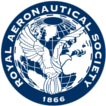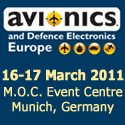IN THIS SECTION : Archives for December, 2010
CORPORATE PARTNER BRIEFING: Tim Clark, President, Emirates Airline
Added on 21 December 2010 by Royal Aeronautical Society
Tags: aerospace community, aerospace industry, Air Transport, airline business, aviation, aviation industry, civil aviation, Emirates airline, royal aeronautical society, society events, super jets
CORPORATE PARTNER BRIEFING: Sir David King, Director, Smith School of Enterprise and the Environment, University of Oxford
Added on 20 December 2010 by Royal Aeronautical Society
Please note: Attendance at Corporate Partner Briefings is exclusive to RAeS Corporate Partners.
Sir David King, Director, Smith School of Enterprise and the Environment, University of Oxford
Tags: aerospace community, aerospace industry, aviation, aviation industry, Climate Change, environment, royal aeronautical society, Smith School of Enterprise and the Environment, society events, University of Oxford
CORPORATE PARTNER BRIEFING: ‘A Year in Control’ to be given by Richard Deakin, Chief Executive Officer, NATS
Added on 20 December 2010 by Royal Aeronautical Society
Please note: Attendance at Corporate Partner Briefings is exclusive to RAeS Corporate Partners.
A YEAR IN CONTROL
Richard Deakin, Chief Executive Officer, NATS
Tags: aerospace community, aerospace industry, air traffic control, airports, aviation, aviation industry, NATS, richard deakin, royal aeronautical society, society events
CORPORATE PARTNER BRIEFING: ‘Climate Change and Aviation’ to be given by Professor Sir Brian Hoskins, Director, Grantham Institute for Climate Change, Imperial College London
Added on 20 December 2010 by Royal Aeronautical Society
Please note: Attendance at Corporate Partner Briefings is exclusive to RAeS Corporate Partners.
CLIMATE CHANGE AND AVIATION
Professor Sir Brian Hoskins, Director, Grantham Institute for Climate Change, Imperial College London
Biography:
Sir Brian Hoskins is a Royal Society Research Professor. In January 2008 he became the first Director of the Grantham Institute for Climate Change at Imperial College, and now shares his time between Imperial and Reading University, where he is Professor of Meteorology. His degrees are in mathematics from the University of Cambridge and he spent post-doc years in the USA before moving to Reading, where he became a professor in his thirties and was a head of department for six years. His research is in weather and climate, in particular the understanding of atmospheric motion from frontal to planetary scales. His international roles have included being vice-chair of the Joint Scientific Committee for the World Climate Research Programme and President of the International Association of Meteorology and Atmospheric Sciences and involvement in the Nobel Prize winning international climate change assessments. He has also had numerous UK roles, including playing a major part in the 2000 Report by The Royal Commission on Environmental Pollution that first proposed a 60% target for UK carbon dioxide emission reduction by 2050, and is currently a member of the UK Committee on Climate Change. He is a member of the science academies of the UK, USA, China and Europe and has received a number of awards including the top prizes of the UK and US Meteorological Societies and honorary DScs from the Universities of Bristol and East Anglia. He was knighted in 2007 for his services to the environment.
Summary:
A review will be given of the scientific basis for concerns over climate change, and the contribution by aviation will be highlighted. Responses to these concerns will be given, and in particular the UK greenhouse gas targets proposed by the Climate Change Committee will be discussed. Implications for the development of aviation up to 2050 will be drawn.
Programme:
16:30 - 17:00 hrs Tea & coffee
17:00 - 18:00 hrs Briefing
18:00 - 19:00 hrs Reception
If you would like to attend this event and are employed by a Corporate Partner of the Royal Aeronautical Society, please contact Gail Ward, Corporate Events Manager, for booking details:
Tel: +44 (0)1491 629 912
Email: [email protected]
Tags: aerospace community, aerospace industry, aviation, aviation industry, Climate Change, environment, Grantham Institute for Climate Change, Imperial College London, royal aeronautical society, society events
BRANCH LECTURE: A380
Added on 17 December 2010 by admin
Chester Branch lecture:
Speaker: Dr. Thurai Rahalan, Salford University
Joint meeting with IMechE.
BRANCH LECTURE: Astute Submarine Programme
Added on 17 December 2010 by admin
Farnborough Branch lecture:
Speaker: Simon Purvis.
BRANCH LECTURE: Concorde – From Beginning to End
Added on 17 December 2010 by admin
Loughborough Branch lecture:
The activities of the Supersonic Transport Aircraft Committee in 1950 will be described. The large military supersonic aircraft of the 1960s will be reviewed together with their principle problems, in the main their propulsion systems. Concorde followedon from these military aircraft. It will be described in detail especially in relation to its propulsion system. A number of in-service incidents including visits to NASA for FAA certification will also be described.
Speakers:
Ted Talbot
Ted was educated at Ashby-de-la-Zouch Grammar School followed by RAF Henlow, Loughborough College and London University.
He was first employed by the Bristol Aeroplane Company where he progressed through the offices of Aerodynamics, Projects, Powerplant, Mechanical Engineering and Systems. Over time the company became the Airbus Division of British Aerospace. Ted rose to the position of Chief Design Engineer, Airbus Division, Hatfield.
During 8 years at Filton he was party to introducing a design project to Bristol University. This project was supported by 8 Airbus senior design engineers. The project still continues in modified form.
Post retirement he was recalled to assist with the investigations into the Concorde crash at Gonnesse, Paris in the year 2000.
BRANCH LECTURE: The NE Rowe Junior Lecture Competition
Added on 17 December 2010 by admin
Speakers: TBA.
BRANCH LECTURE: Secret British Fighter and Interceptor Projects‘
Added on 17 December 2010 by admin
Speakers: Tony Butler.
BRANCH LECTURE: The Cube Sail satellite recovery system
Added on 17 December 2010 by admin
Speakers: Dr. Vaios Lappas.
BRANCH LECTURE: The A380 Story and What’s Next?
Added on 17 December 2010 by admin
The lecture takes the story of the A380 through from its inception to its Entry into Service, a period of nearly 20 years! The market traffic outlook and the airline requirements that led to the A380 project are described, moving through details of the aircraft definition and key issues for such a large aircraft; choice of fuselage cross section, wing design, weight reduction, ground handling etc, and on to manufacture, flight test and its (late) entry into service. The lecture finishes with a review of the new economic and environmental drivers for future large civil aircraft and some of the new technologies and aircraft configurations we may see beyond the A380.
Speakers:
Professor Jeff Jupp
Jeff Jupp recently retired as Director Technical, Airbus UK, and is currently Visiting Professor at Bath University. Having graduated with first class honours at Queens’ College Cambridge, he started his career in Civil Aircraft Design in the Aerodynamics Department at Hawker Siddeley, Hatfield, before moving with the Airbus project to British Aerospace at Filton, Bristol,where he was appointed Engineering Director in 1993. He is the joint holder of the 1993 Royal Society ‘Esso Energy
Award’ Gold Medal.
BRANCH LECTURE: From the Solar System to the Edge of the Observable Universe
Added on 17 December 2010 by admin
Highland Branch lecture:
We live in exciting times, when we can tell the story of the evolution of our universe from when it was a fraction of a second old until the present day and even look into the future. In this richly illustrated lecture, Robin will cover new discoveries inour solar system, how stars are born and die, explain the importance of dark matter and vacuum energy and show the deepest image ever obtained of our universe.
Speakers:
Dr Robin Catchpole
Robin has recently retired as Senior Astronomer at the Royal Observatory Greenwich, currently works at the Institute of Astronomy, Cambridge, and has been an astronomer all his life. He has authored and co-authored over 100 research papers and used a number of telescopes around the world including the Hubble Space Telescope. His research interests include the composition of stars, exploding stars, the structure of our Galaxy and galaxies with black holes at their centres. He has given many lectures and radio and TV interviews.
BRANCH LECTURE: BWC AGM & Lecture
Added on 17 December 2010 by admin
Birmingham, Wolverhampton & Cosford Branch lecture:
Speaker: Group Captain Tom Eeles.
BRANCH LECTURE: The Westland Lysander
Added on 17 December 2010 by admin
Yeovil Branch lecture:
This lecture is dedicated to the memory of Fred Ballam, FRAeS and is timed to commemorate the 75th Anniversary of the first flight of the Lysander. Additionally, this lecture will be preceded by the Branch AGM.
Speaker: Paul Hurt, MEd Flfl. MIET.
BRANCH LECTURE: Medway Branch AGM plus supporting program (tbd)
Added on 17 December 2010 by admin
TBA.
BRANCH LECTURE: “Amelie’s boys – the flying McCuddens”
Added on 17 December 2010 by admin
Gloucester & Cheltenham Branch lecture:
Speaker: Capt. David Rowland FRIN, FRAeS.
BRANCH LECTURE: AGM followed by Propellers: past, present and future
Added on 17 December 2010 by admin
Farnborough Branch lecture:
Speaker: Patrick Hassell
Rolls Royce Heritage Trust.
BRANCH LECTURE: Saunders Roe and the Princess Flying Boat
Added on 17 December 2010 by admin
Loughborough Branch lecture:
The lecture will describe the background to the formation and evolution of the Saunders Roe Company at Columbine Works, East Cowes. The origins of the “large flying boat” concept are traced that resulted in a UK Government contract being placed in 1945 with Saunders Roe for design and construction of the SR45 Princess, with BOAC as a somewhat reluctant “customer”. Design, development and construction of the Princess and the facilities employed at East Cowes in the course of the project are described together with the build up to the first flight and flight test programme. The reasons for the eventual demise of the Princess are identified that eventually led to all three Princess craft being scrapped in the 1960s, despite various efforts to find an alternative use. Some relics of Saunders Roe and the Princess project that remain in existence are identified, however, the Saunders Roe Company faded from view when it lost its independence in 1958 following acquisition by the Westland Group.
Speakers:
Bob Wealthy
Bob Wealthy has an interest in the history of the British aviation industry with special attention to the companies in the Solent Region. He was born on the Isle of Wight and the Saunders Roe Company was a major part of Island life through to the late 1950s and this and regular attendance at Farnborough Shows influenced his continuing interest in the subject of aviation which has continued on and off to the present day.
He has now retired from work in the defence electronics industry where he started as an apprentice with GEC in 1959. There he was fortunate enough to work in the emerging field of space systems. Having worked on a number of technology and scientific research satellite projects he spent the last 10 years as a systems engineer with the Skynet 5 Military Satellite Communications System project with the EADS Astrium Company that had acquired the consolidated parts of the UK’s space industry from BAE Systems. He now spends more of his time on his aviation heritage research and shares some of the knowledge that he has gained about past achievements in aircraft engineering.





